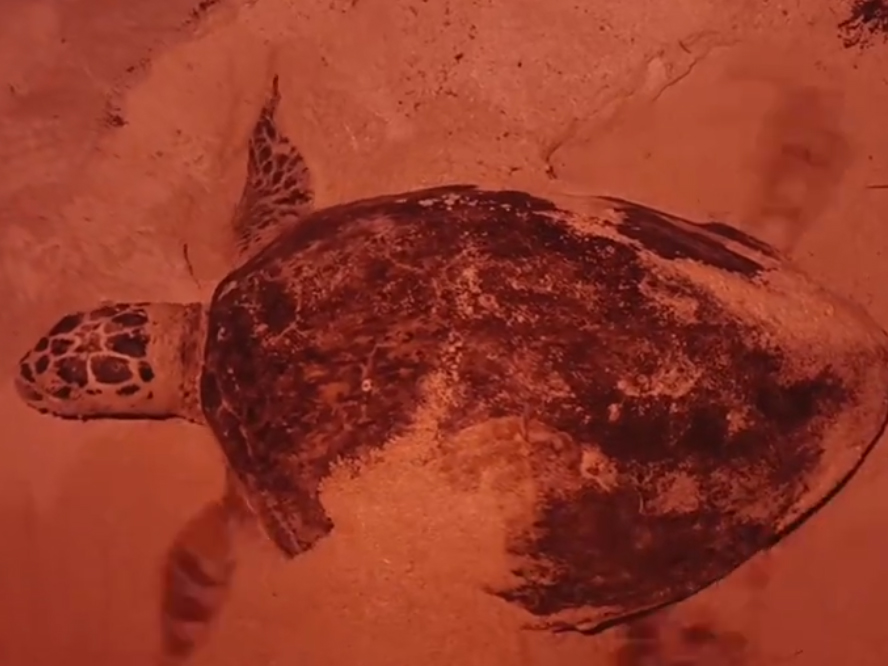The marine scientific team from the Ministry of Environment and Climate Change in Doha, Qatar recently took on the task of documenting hawksbill turtle nesting along the country’s coastline. During this process, they also made sure to remove barnacles from the turtles’ hard upper shells. In a video shared on social media, the scientists were shown carefully scraping off the barnacles, explaining that an excess of these organisms can weigh the turtles down and hinder their movement in the sea.
It was also mentioned that the Ministry makes use of red lights when working with the turtles in order to avoid causing them stress or disturbance. In addition to their efforts in protecting and assisting the turtles, the Ministry also issued a gentle reminder to beachgoers. They urged people to refrain from disturbing nesting sites and to be cautious when visiting beaches during the nesting season. This season typically runs from April 1 to August 1, with the turtles being commonly found on the northern shores of the country.
The hawksbill turtle is a critically endangered species, making the conservation efforts of the Ministry all the more crucial. By removing barnacles from their shells and taking precautions to minimize stress on the turtles, the scientists are playing a vital role in protecting these creatures. The public’s cooperation in respecting nesting sites and exercising caution on the beaches is also important in ensuring the safety and well-being of the turtles during their nesting season.
The video shared by the Ministry provides a glimpse into the work being done to aid the hawksbill turtles. It serves as a reminder of the importance of protecting marine life and the habitats they rely on. By raising awareness through social media and other platforms, the Ministry is able to educate the public about the threats faced by sea turtles and the ways in which they can help in their conservation.
In addition to their efforts with the hawksbill turtles, the Ministry of Environment and Climate Change in Qatar is involved in various conservation projects aimed at protecting the country’s marine ecosystems. Through research, education, and advocacy, they work towards promoting sustainable practices and preserving biodiversity. By collaborating with experts, volunteers, and the public, the Ministry is able to make significant strides in safeguarding the environment for future generations.
As the sea turtle nesting season continues, the Ministry’s work remains ongoing. By monitoring nesting sites, removing obstacles, and raising awareness, they are able to support the hawksbill turtles in their journey to ensure the survival of their species. Through their dedication and commitment to marine conservation, the Ministry of Environment and Climate Change in Qatar sets an example for others to follow in protecting our oceans and the creatures that call them home.































